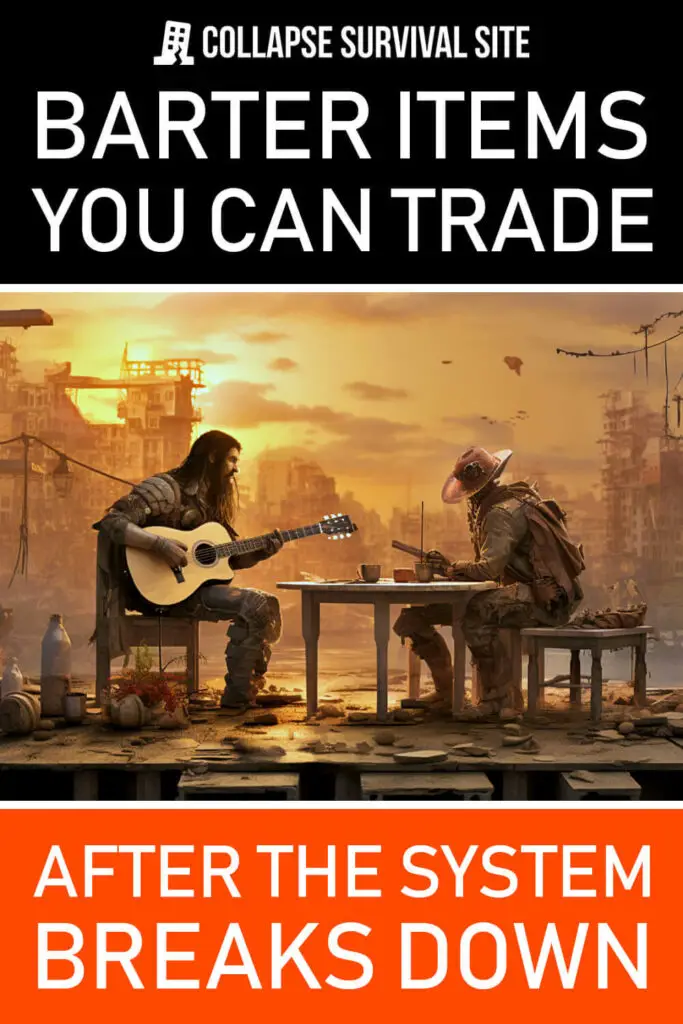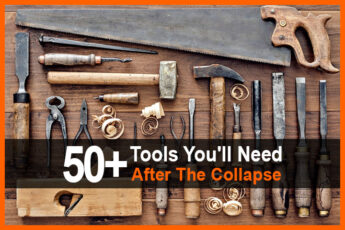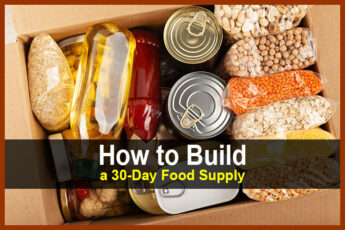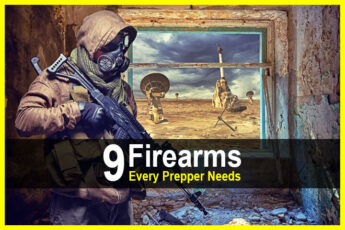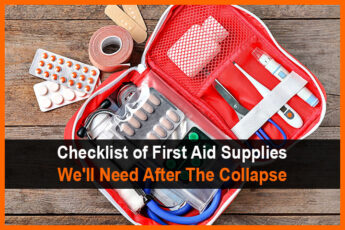Estimated reading time: 15 minutes
Most of have not endured life in a barter economy. It’s when the currency of a country has been so devalued (usually because of hyperinflation) that traditional, everyday purchases are impossible. Other causes for the emergence of a barter economy include war and a general societal collapse.
Historically all commerce was based on a barter economy, at least in ancient times. It wasn’t until the invention of money and the belief that it was a tangible currency that money became an acceptable item for trade and commerce. The ancient Chinese introduced the concept around 600 B.C. and the ancient Greeks and Romans expanded the idea from there.
Want to save this post for later? Click Here to Pin It On Pinterest!
But there’s a fundamental problem with money. It’s the belief and the faith that the money is actually worth anything. Worse, the value of any currency often fluctuates and when inflation and particularly hyperinflation occurs, the money becomes worthless. Significant deflation in an economy can have the same effect.
An often touted example is Germany in the 1920’s when it cost 200,000,000,000 Marks for a loaf of bread. In case you’re wondering that's 200 billion Marks. It’s at times like that when economies crumble and collapse, and barter becomes the only viable means for a transaction.
Today, Venezuela is in the midst of hyperinflation and once again a barter economy has emerged. The fact is that any economy and particularly the global economy are subject to hyperinflation. As prices skyrocket and the common currency is worth less than toilet paper the only solution is to trade goods and services for goods and services.
The Challenges of Bartering
As an economy and country devolves to a barter economy, the population is confronted with a new set of challenges. It becomes a question of “What do I need and what do I have that I can trade to acquire it?”
It seems easy at first as various items that are seldom used or in duplicate make their way to barter markets for a new kind of shopping trip. The problem is that those extra items soon run out. At that point the only solution in a barter economy is to begin surrendering items that have value to a family, but must be traded for a needed or critical item.
We’re going to explore solutions to that problem through stockpiling certain items, making or creating other items, and the idea of trading skills or services. Think of all of them as your barter stockpile, but you need to plan ahead to build those reserves.
Determining Value
A fact of any barter marketplace is a certain amount of haggling. It’s all about determining a fair trade based on the perceived value of items. The obvious driver is that old concept of supply and demand. High demand will enhance the value of an item, and low supply will also increase its value.
But there’s more to it than standard commerce principles. Sustainability will become the new normal in a barter economy and items that will allow people to live a sustainable lifestyle will have added value. Examples include tools that allow you to build or repair things, vegetable seeds that will allow someone to grow food and harvest more seeds for the future, and even functional items like cast-iron cookware that is perceived as both useful and sturdy.
As we list various items and ideas for a barter stockpile we’ll always look towards things and ideas that will potentially be in high demand, low supply or enable sustainability. Without some kind of filter for stockpiling, our homes will be reduced to a hoarder’s warehouse.
Specific Barter Items to Consider Stockpiling
A famous economic concept is built around the question of guns or butter. It was a symbolic analogy driving decisions but certain items will always emerge as high value in a collapsed society. We’re going to start with items that are inexpensive, relatively small so they’re easy to store, and potentially have high value in a barter marketplace.
One note that we'll cover in detail later is where and how to acquire these items. Some you may already own and have considered throwing away – don’t do that. Others you can buy and we’ll get into many you can make. What’s important is to start looking at things differently. If you’re concerned about the emergence of a barter economy, think about the barter potential for all items you see, possibly buy or currently own.
Food
Canned Food may be the best option because it is portable, durable and has a decent shelf-life. They also have best-by dates printed but some people know that a best-by date is a suggestion rather than a hard and fast rule for food-storage.
Canned foods with the highest value will be foods with high calories, vitamins and minerals and some with protein like canned fish (tuna, mackerel, and sardines); canned meats, and canned fruits and vegetables. Other possibilities are ready-made meals like cans of chili, stew, and hearty soups.
Baby Food will always be in demand and the short supply of baby formula during the pandemic demonstrated its importance. The baby food sold in jars is a good option in addition to powdered formulas.
Coffee is often thought of as a comfort food. Instant coffee is probably best although whole beans have a good shelf-life and may be in very short supply.
Canning Jars will have great value to many people who know and appreciate the ability to preserve foods, but simply don’t have food-safe packaging like canning jars.
Fortified and flavored drink mixes, preferably in Mylar pouches will also have great value. Many things like milk, canned beverages and bottled juices will either be in short supply or simply unavailable.
Things like powdered milk, chocolate milk, flavored drink mixes and fortified drink mixes with added vitamins, minerals and electrolytes will be highly valued. The ability to simply add water to a powdered mix to get something more will appeal to a broad part of the population, especially in desperate times.
Specialized cooking equipment may emerge as a very valuable commodity in an environment where electricity, water and even natural gas will be both expensive and possibly unavailable.
Cast-iron cookware is both highly functional and durable. You can even find or buy old, rusty cast-iron and restore it easily for future trade. Any open-fire cooking equipment like cooking grates, tripods, Dutch-ovens and stockpots will also be valuable as some people are forced to shift to more traditional cooking styles. Try to find used equipment and refurbish it.
Cigarettes and alcohol aren’t food in the traditional sense but they are definitely consumed and to some people will have high value. Cigarettes are best stored in a freezer and popular alcohol varieties like whisky and vodka will also find a market.
Medical Supplies
Everyone eventually gets sick or injured and that may be an increasing likelihood in a time of collapse.
OTC or over-the-counter medicines in their original, unopened packaging will be high value. Kid’s dosages will also be in high demand. Basics like pain-relievers, decongestants, anti-allergy medicines, cough medicines, and a range of creams and ointments from burn cream to antiseptics to cortisone will be in demand. Other possibilities include eye and ear drops, and anti-fungal sprays and treatments.
General first-aid items including bandages, splints, elastic wraps and surgical tape will always have a market in a barter economy. Specialized equipment like wrist and knee braces, crutches, canes and other prosthetic devices will always have a market.
Domestic Items
Some things in life never end like laundry, dishes and going to the bathroom. As the toilet paper panic demonstrated at the height of the pandemic, people take some of the little things seriously.
Toiletries like toilet paper, tampons, baby diapers (fabric diapers are best), in addition to soap are seen as both necessary, and in troubled times, luxuries that will be highly valued.
Detergents for laundry, dish soap for the dishes, kitchen cleansers, and any other items you use to keep things clean will be in constant demand.
Personal Care Items
There’s always more to keep clean than the kitchen and personal care items will be sorely missed for many people in a barter economy. We already mentioned soap but there are other personal care items that are just as important.
Skin and Hair Care items including shampoo, conditioners, moisturizers, exfoliates, hand sanitizer and makeup will always have a market.
Personal care tools as simple as combs, brushes, nail clippers, manicure scissors, nail files and others will be sorely missed by some people in a troubled economy.
Tools
This is a big one and really supports the need for sustainability in a time of serious shortages. Some of us older folks have accumulated quite a few tools over the years. If someone asks you if they can borrow a Philips Head screwdriver and instead of saying, “Yes,” you say, “What size?” it’s a good bet you’ve got a lot of tools. Never throw an old tool away.
A rusty pair of pliers may look sad next to your shiny new ones, but someone without some of these basic tools will quickly see past the rust. You could also take a little time to restore any old tools to enhance their value.
Timber Tools that will have great value in a barter economy include tools like axes, drawshaves, hand borers, wedges, timber hand saws, ropes and pulleys. This is another opportunity to buy them used and refurbish them.
Carpentry tools include assorted hammers, tape measures, levels, drawstrings, tool belts, handsaws, hand drills and bits, and wood chisels.
Hardware isn’t cheap today and will not only be in short supply but even unavailable. This includes nails, screws, nuts, bolts, washers, springs, cotter pins, bailing wire, ropes and cordage, locks and locksets and any other hardware. If you have a coffee can of old, rusty hardware in the garage –don’t toss it.
Craft supplies will have significant value as people turn to crafting many items. Think of any and all of the materials and tools that you may have or could easily and inexpensively acquire for later trade for crafts like sewing, leather crafting, woodworking, knitting, pottery, bee keeping, quilting, brewing, distilling, basket weaving, macramé, candle-making, metal working and the list goes on.
Many people will want to actively pursue these sustainable skills but some will struggle without the basic tools and materials to create these items.
Emergency Supplies
If we’re living in a barter economy it may seem like everything is an emergency but there are some basics that we or others may particularly need to deal with common challenges.
Emergency lighting supplies including candles, matches, candle lanterns, solar or hand-powered flashlights, rechargeable batteries and chargers, solar lights, and even light bulbs. If you can’t buy it or can’t afford and you can’t see at night you’ll need it and so will everyone else.
Emergency water supplies and we don’t mean bottled water. This is about basic water filtration and purification including water-purification tablets, water filters, even common items like iodine and chlorine bleach are going to have high value at a time when no water is safe to drink.
Emergency heat can quickly become a threat in winter in certain parts of the country. A wood-fried Cookstove would be too expensive to stockpile but blankets, hats and gloves, firewood, anything that’s inexpensive that you have room to store or stockpile will be valuable commodities when too many people are spending too much time shivering.
DIY Items
Ultimately, your ability to create things that have value may be your greatest strength in a barter economy. If you have extra tools for any of these tasks you will also find many who will see them as invaluable. Here are some of the DIY items you could stockpile or make on demand in preparation for a day of bartering:
- Home preserved foods
- Rustic Furniture
- Clothing
- Distilling and Fermentation
- Charcoal
- Baked goods
- Crafts from brooms to candles to soap
- Homemade personal care products
- Soap
- Lotions
- Hand sanitizer
- Shampoo
If there’s a demand for something you can make – make it.
From the Farm and Garden
Barter markets are a lot like flea markets and farmer’s markets. If you have the room or determination to have a large garden or raise chickens you have some homegrown barter. Consider the following:
Even if you can’t grow it, if you have wild foraging skills you may be able to find it and package it to trade for something you need.
Skills
Trading skills in exchange for goods or services was another classic practice in ancient and pioneer times. If you have a unique skill that would be a challenge to most people, you can definitely trade that ability for an item you need or someone else’s unique skill. Here’s a brief list of the many skills that would be a challenge to many of us:
- Auto mechanic
- Cabinet maker
- Carpenter
- Doctors and Dentists
- Electrician
- Locksmith
- Mason
- Plumber
- Small engine mechanic
- Welder
There are certainly more but if you have a unique skill that would be a challenge to most you have something else to trade for something you need.
Finding Success in the Barter Marketplace
It’s one thing to have a lot of stuff to trade, it’s another thing finding what you want to get as a result. Dedicated barter markets are one possibility. They even happen today and are usually called “swap meets.” If you’ve never been to a swap meet it’s a good place to learn about the art of barter.
Some people will set up a table with what they have to trade, but most importantly they’ll also display a sign indicating what they are interested in trading for. Other people will walk the market pulling a wagon behind them with items they can offer for trade. This is easier to do with small items obviously.
Other people show up as specialists. They have significant quantities of one item to trade, or a bundle of items specifically related to a subject like tools, preserves or other related groups.
A sign anywhere can also give you a barter connection. If you have a lot trees and firewood stacked in the backyard you could put a sign at the entrance to your driveway indicating what you have to trade and what you are hoping to acquire.
If the Internet is still active, there are swap sites where you can arrange a trade although most require you to both deliver and pickup what you are trying to exchange. Although some agree to delivery by mail or other services, in desperate times it's a risk so barterer beware.
The Quality Question
The good thing about bartering items in person is both parties can inspect the items being swapped. That’s no guarantee of quality in some instances (canned food without a label) but at least you get a chance to look at what you are trading for. It’s wise to only offer quality items because there’s another important side to a barter economy.
Building Relationships
If you develop a good reputation for consistently delivering good quality and fair play your reputation will hopefully spread. This could cause past swappers to seek you out in the future and new people to find you because of your good track record.
This could also help if someone doesn’t have what you want but knows someone else who does. If you’re having trouble tracking down something you really need, fellow barterers can be a great resource for information about what’s out there and where.
Best Sources for a Barter Stockpile
If you’re thinking about assembling a stockpile of items for barter you’ll want to do it wisely. This means finding the best items for the best price with a reasonable level of quality reassurance. Here are some possibilities from the obvious to the surprising with links to more information:
√ Traditional retailers
Shop the sales and clearance aisles. If it’s a great price and you think it might be valuable as barter –buy it.
√ Warehouse stores
Costco and Sam’ Club offer discounts on bulk items. By some for your everyday use, store some in your personal stockpile, and then set some aside for potential barter. Even if you never swap it for something else you can still use it.
√ The Dollar Store
This is a great place to pick up a lot of domestic and everyday items for a low cost. The quality isn’t always great but a lot of things from bandages, OTC medicines and cleaning supplies are a great value.
√ Dumpsters
It may seem a little too “street” but dumpsters can be a goldmine for items that are still new and simply discarded. Check out the retailers like Target, Walmart, and others and you may be surprised by what you may find.
√ Thrift stores
Goodwill stores are one example and they often have a wide range of items that will no doubt have increased value when they’re not longer available or affordable –anywhere.
√ Military Surplus Stores
The type of gear ranges widely but for people living in dangerous times many of these items will be relevant.
√ Flea markets
You’ll probably get some good ideas for what will be valuable at a barter market and here again; you can find some great deals on just about everything.
√ Homemade
If you don’t have it but can make it you’re in business. This is another good reason to check out swap meets, flea markets and farmer’s markets. If you notice a lot of interest in something you can make it will probably be very appealing to people in a barter economy.
√ Home Grown
If you have a large vegetable garden, chickens or better yet –an orchard, you’re in luck. You’ll no doubt have excess and if you don’t have time to preserve it, barter it.
√ You
This gets back to your skills as a form of barter. Think about what you can do. You may also want to acquire some new skills as well. If we find ourselves in a situation where we’re living in a barter market, all of those skills will make you more sustainable.
Manage Your Stockpiling
It’s easy to get carried away and it’s hard to know how much anything will be worth in a barter economy. Some of the ideas we’ve shared here are a good place to start. A lot also depends on where you live and the unique challenges people may face in your location.
You just don’t want to overwhelm your life and your home with thousands of things that you might be able to barter – someday. Organize some barter boxes and keep them stored out of the way. Fill them as you go. Then, take the time to think about and assess what will have real value when resources are few and far between.
Hopefully, our biggest problem will be figuring out what to do with all that stuff we never got around to bartering. Then again, if the worst happens you’ll at least have a head-start and a fighting chance in the uncertain world of a barter economy.
Like this post? Don't Forget to Pin It On Pinterest!

